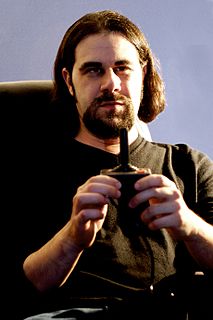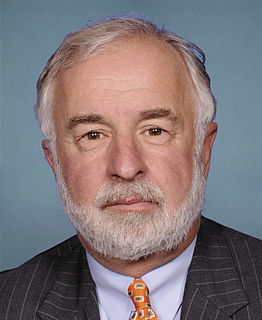A Quote by Gary Johnson
Our government should not be spying on the electronic communications of American citizens. Nor should our iPhones or Android devices be subject to unreasonable searches and seizures.
Related Quotes
Today, all our wives and husbands have Blackberries or iPhones or Android devices or whatever-the progeny of those original 950 and 957 models that put data in our pockets. Now we all check their email (or Twitter, or Facebook, or Instagram, or) compulsively at the dinner table, or the traffic light. Now we all stow our devices on the nightstand before bed, and check them first thing in the morning. We all do. It's not abnormal, and it's not just for business. It's just what people do. Like smoking in 1965, it's just life.
And that the said Constitution be never construed to authorize Congress to infringe the just liberty of the press, or the rights of conscience; or to prevent the people of the United States, who are peaceable citizens, from keeping their own arms; or to raise standing armies, unless necessary for the defense of the United States, or of some one or more of them; or to prevent the people from petitioning, in a peaceable and orderly manner, the federal legislature, for a redress of grievances; or to subject the people to unreasonable searches and seizures of their persons, papers or possessions.
Disturbingly, the First Amendment, along with the Fourth Amendment - protecting against unreasonable searches and seizures, and requiring warrants - have been the major casualties of the shift in government policy in the last two decades. Unfortunately, I think that the biggest consequences of this tragedy won't be clear until it is far, far too late.
Our government should do everything it can to ensure the successful prosecution of those responsible for the murders of U.S. citizens abroad. It should provide resources as needed, and it should make it clear to the authorities in Belgrade that inaction does have repercussions on bilateral relations.
No government has the right to decide on the truth of scientific principles, nor to prescribe in any way the character of the questions investigated. Neither may a government determine the aesthetic value of artistic creations, nor limit the forms of literacy or artistic expression. Nor should it pronounce on the validity of economic, historic, religious, or philosophical doctrines. Instead it has a duty to its citizens to maintain the freedom, to let those citizens contribute to the further adventure and the development of the human race.
There are just a host of problems born by the electronic age. Things we couldn't even conceive of. I was amused by the analogy that Justice Scalia made in a case about a GPS tracker so you don't know that's being done to your car, is that a violation of your right to protection against unreasonable searches and seizures. So Justice Scalia imagines a constable clinging to the bottom of a carriage as it went on its way, so there was some notion that this similar: there is an official eye that's on you, but you don't know about it. Yes, there are all kinds of challenges.
We need to surrender our attachments to government in every aspect of life. We need to give up our dependencies on the state, materially and spiritually. We should not look to the state to provide us financially or psychologically. Let us give up our longing for welfare, our love of war, and our desire to see the government control and shape our fellow citizens.



































